

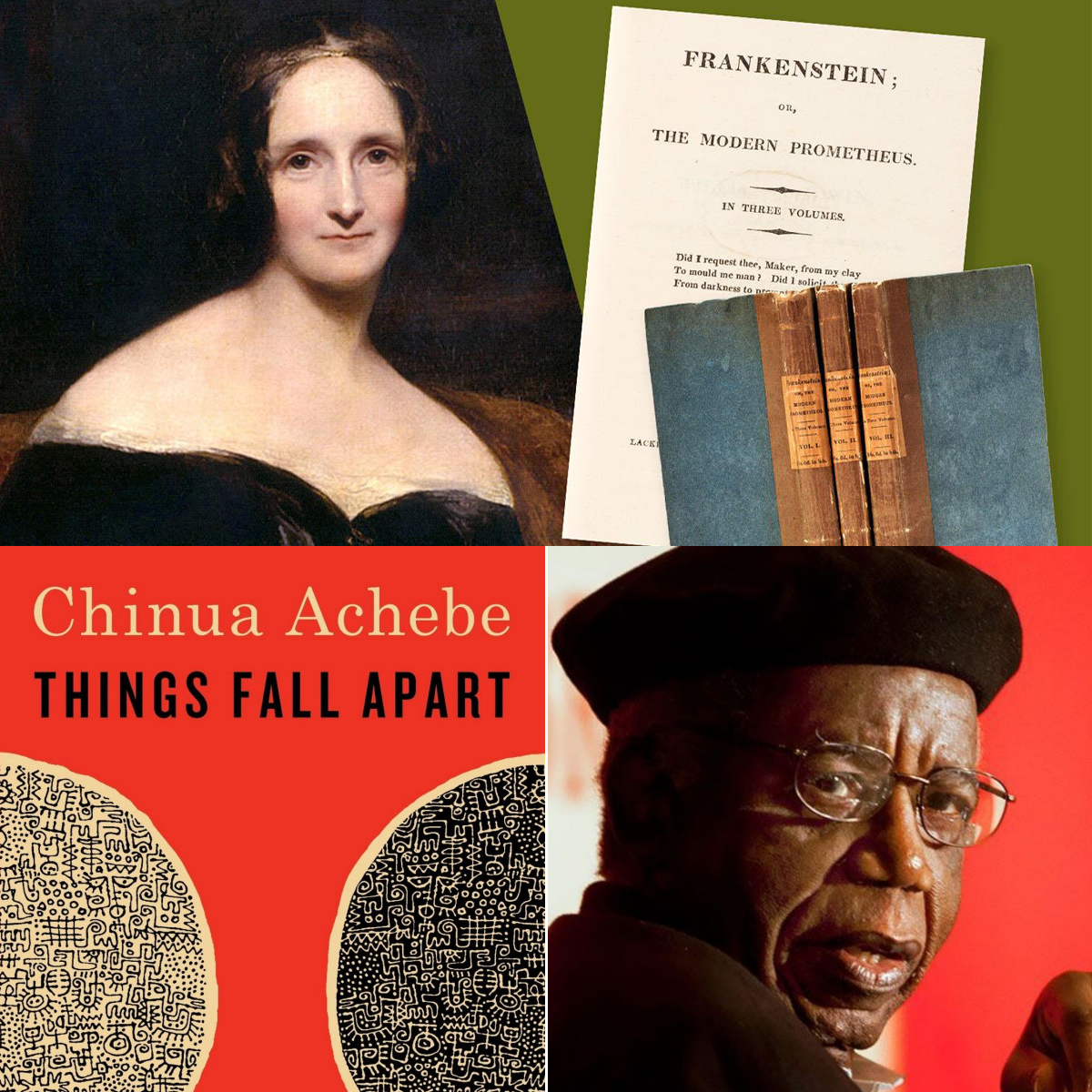
Literary Theory
LIT 3213.003|O. Buckton|Req.|Term 2|Distance Learning|Fully Online Class
As Jonathan Culler writes in Literary Theory: A Very Short Introduction, since the 1960s “writings from outside the field of literary studies have been taken up by people in literary studies because their analyses of language, or mind, or history, or culture, offer new and persuasive accounts of textual and cultural matters. Theory in this sense is not a set of methods for literary study, but an unbounded group of writings about everything under the sun.” This fully-online course will seek to explore this “unbounded” scope of critical theory, by focusing on the application of various critical and theoretical discourses to the interpretation of influential—and widely read--literary texts. We will be sampling a range of critical approaches and methodologies including feminism, psychoanalytic theory, postcolonial theory, queer theory, and Marxism. Two celebrated novels will serve as case studies for our applications of critical theory: Mary Shelley’s Frankenstein (1818/1831) and Chinua Achebe’s Things Fall Apart (1958).
Intro to Literary Studies
ENG 3822.002|T. Frost|Req.|Term 3|Boca Raton|In-Person|T/R 1:15pm–4:25pm
As a foundational gateway to the study of literature for English majors, this course “prepares students to enter the field of literary studies by introducing three genres, key concepts, and two-to-three critical approaches to literature.” To achieve these outcomes, students will read texts from the genres of poetry, fiction, and graphic narrative, and they will consider and apply theoretical approaches, including Formalism, Structuralism, New Historicism, Marxism, Postcolonial Studies, Gender Studies, and Deconstruction. We will consider the ways literature is shaped by society, and how we, as readers, situate ourselves within both literary and cultural texts. Students who take this course will learn essential terms of literary discourse, consider several critical and theoretical approaches to literature, attain and practice strategies of literary research, and apply these skills in the analysis of texts.
***************

Major Writers of World Literature in English
LIT 4244.001|S. Jones|Cat 1|Term 2|Boca Raton|In-Person|W/F 9:45am–12:55pm
Travel the literary space-time continuum as we explore some of the most significant literature in the English language from around the globe. We will address works of literature, comics, and film adaptation from all inhabited continents: Africa (China Achebe, Bessie Head, and Wole Soyinka), Asia (A.K. Ramanujan and Marjane Satrapi), Europe (Alan Moore and Dylan Thomas), North America (Zitkala-ša and Stanley Kubrick), Oceania (Witi Ihimaera) and South America (E.R. Braithwaite). Students will also have the opportunity to delve in authors and works not on this list.
Afrofuturism: Race to the Future
LIT 4930.001|I. MacDonald|Cat 1|Term 3|Distance Learning|Online Live Lecture|T/R 4:45pm–7:55pm
This course surveys science fiction by Black authors from the Americas (including Canada, the United States, and the Caribbean) and Africa: a quickly expanding field of immense scholarly- and creative production. Addressing the intersections and distinctive ruptures between Afrofuturist—typically anchored in the U.S. and Europe—and African SF, the readings highlight the manner by which Black techno-futures confront the context of race and conceive of the role of Africa as symbol and source in speculative landscapes. Authors will include Samuel Delany, Octavia Butler, Nalo Hopkinson, Ishmael Reed, and Nnedi Okorafor.
Women and Literature
LIT 4383.001|K. Polak|Cat 1|Term 3|Distance Learning|Online Live Lecture|M/W 1:15pm–4:25pm
In this course, we will survey contemporary women writers, mostly from the 21st century, to examine how women negotiate identity in a variety of cultural contexts. Interlocking systems of power affect women’s lives in complex ways, and in this class, we will seek to understand how women in different contexts attempt to resist or conform to those systems of power. What challenges do women face in different times and places? How do other aspects of women’s identities combine with, or even complicate their womanhood? How does the performance of femininity alternately celebrate and subjugate women? To what extent is womanhood predicated on an “other” who is a man, and to what extent does womanhood exist independently? Focusing on fiction, poetry, and comics, we will develop a sense of the varieties of creative expression women use to know themselves and their cultures.
**************************

Literature of Adolescence
LIT 3333.001|R. Fox|Cat 2|Term 2|Boca Raton|In-Person|T/R 1:15pm–4:25pm
The aim of this course is to explore representations of adolescence, in literary texts classified as “YA” and texts that take up adolescence as theme. Participants will assess texts (drawn primarily from Black and Latinx cultural contexts) to examine conditions of adolescence and their effects. We will uncover how adolescence intertwines with matters of friendship, sexuality, and violence, as well as ways in which it involves processes of nation, including immigration and assimilation. We will also interrogate renderings of young adulthood as innocent, ignorant, even disposable. Other questions orienting this course include: How is adolescence evoked by the body? How do devices, such as flashback, mediate adolescent longings? How do religion and education regulate adolescent self-expression? In what ways does class privilege inform naiveté? In what respects do gender and race influence one’s upbringing? How might those circumstances be reimagined to alternate ends?
American Literature from 1865
AML 2020.001|T. Hagood|Cat 2|Term 2|Distance Learning|Fully Online Class
When you have finished reading the literature in this course, your grasp of our present world will be more profound than ever. The tropes that define practically every aspect of contemporary life aesthetically, socially, politically, economically, and linguistically were all shaped in the works of literature produced since the Civil War. From W. E. B. Du Bois and Booker Washington to Gertrude Stein and William Faulkner to the poets and comics of our moment, the literature of the United States since 1865 shows us how we have become who we are.
max of 2 courses (6 credits) can be in lower division for the entire major
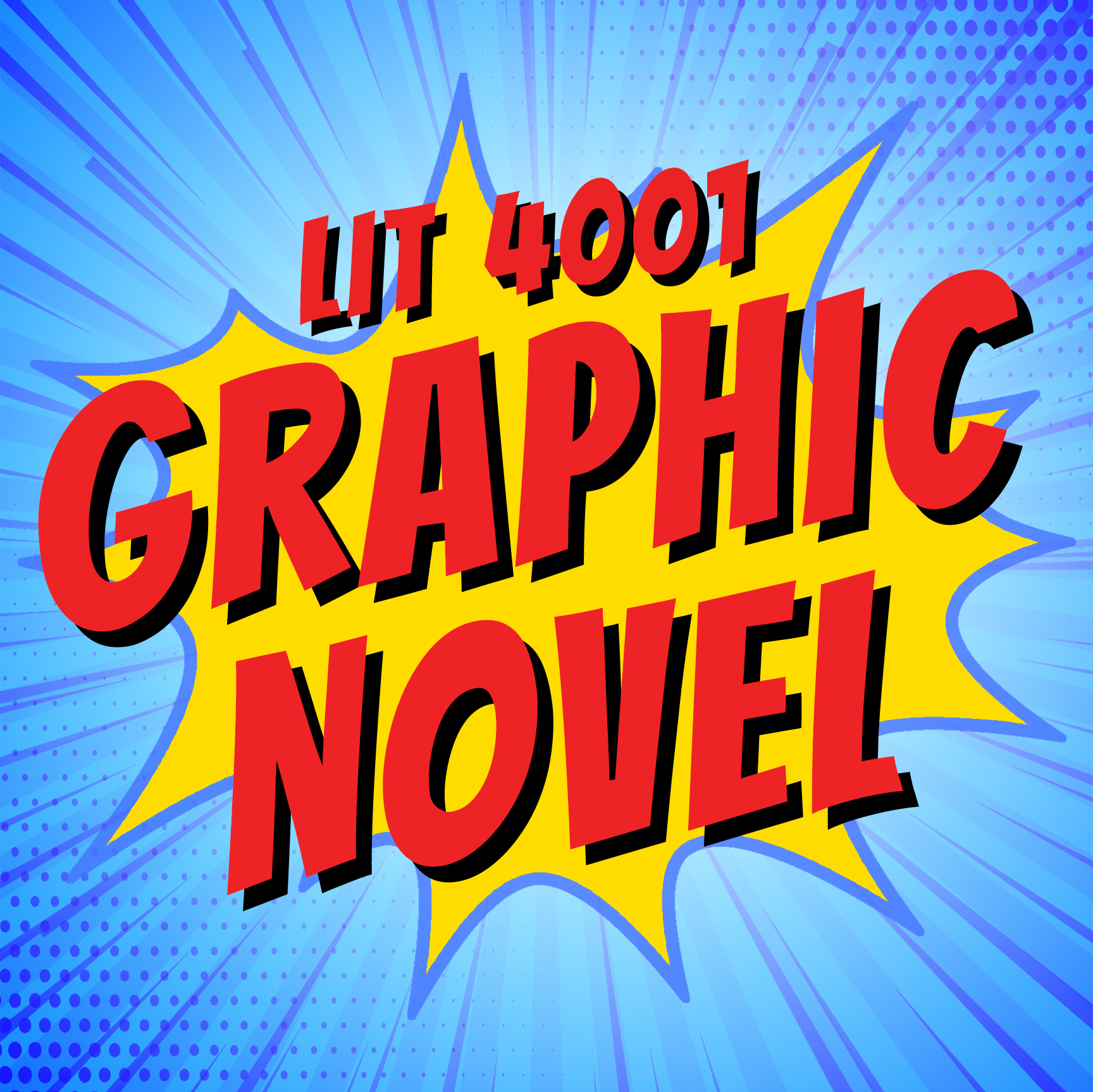
Graphic Novel
LIT 4001.001|K. Polak|Cat 2|Term 3|Distance Learning|Online Live Lecture|T/R 1:15pm–4:25pm
Comics, in spite of a history spanning several hundred to several thousand years (depending on how you define the term), are still considered an emerging literary form. In this class, we will explore recent comics (also called graphic narratives, graphic novels, and sequential art) to examine how this form requires different reading strategies and stages unique possibilities than other literary forms. By analyzing both the form of comics and the types of content creators engage with, we will discuss what comics do differently, and what potential is offered by this oft-maligned form.
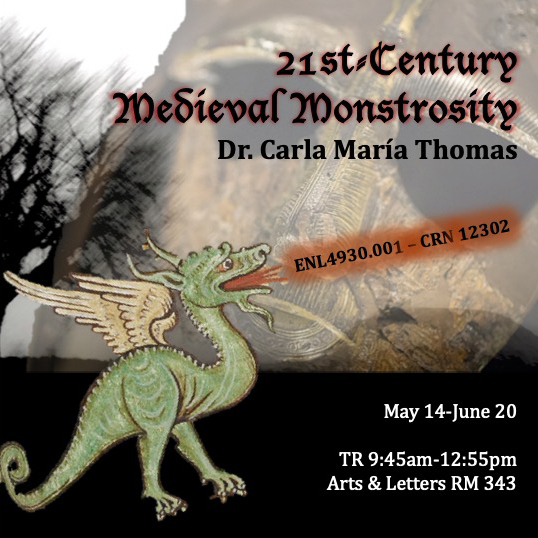
21st Century Medieval Monstrosity
ENL 4930.001|C. Thomas|Cat 2 (pre-1800)|Term 2|Boca Raton|In-Person|T/R 9:45am–12:55pm
21st-Century Medieval Monstrosity will explore adaptations of medieval monstrosity in the late 20th and early 21st centuries by pairing medieval texts with modern literature, television, film, and games (table top and video). We will read Jeffrey Jerome Cohen's "Monster Culture (Seven Theses)" before diving into a variety of classical Arabic, Old English, Old Norse, and Middle English texts along with contemporary novels by Michael Crichton and J. R. R. Tolkien, films like The Green Knight, and games like Dungeons & Dragons,
Skyrim, and more. Our class meetings will be filled with dynamic discussions, film viewings, and gaming to answer the question: what constitutes a monster or the monstrous, then and now?
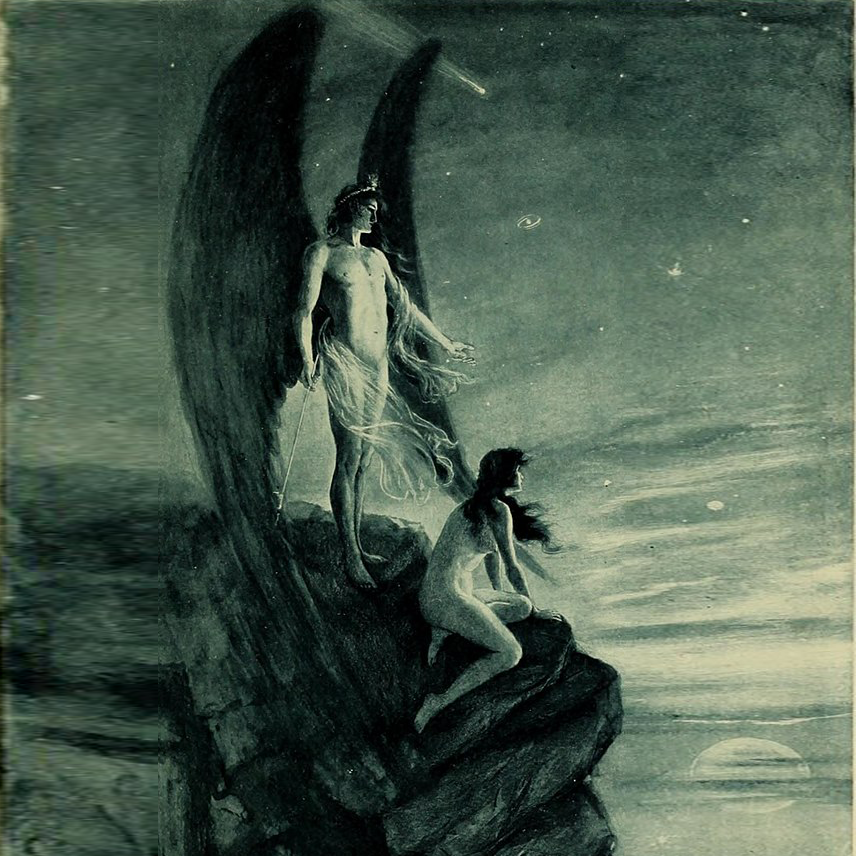
British Literature Since 1798
ENL 2022.002|J. Ulin|Cat 2|Term 3|Distance Learning|Fully Online Class
While yet a boy I sought for ghosts, and sped /
Through many a listening chamber, cave and ruin, /
And starlight wood, with fearful steps pursuing /
Hopes of high talk with the departed dead.
~Hymn to Intellectual Beauty,” P.B. Shelley
This course will cover major works of British and Irish literature from the Romantic period through the present with a focus on representations of the gothic and the supernatural.
max of 2 courses (6 credits) can be in lower division for the entire major
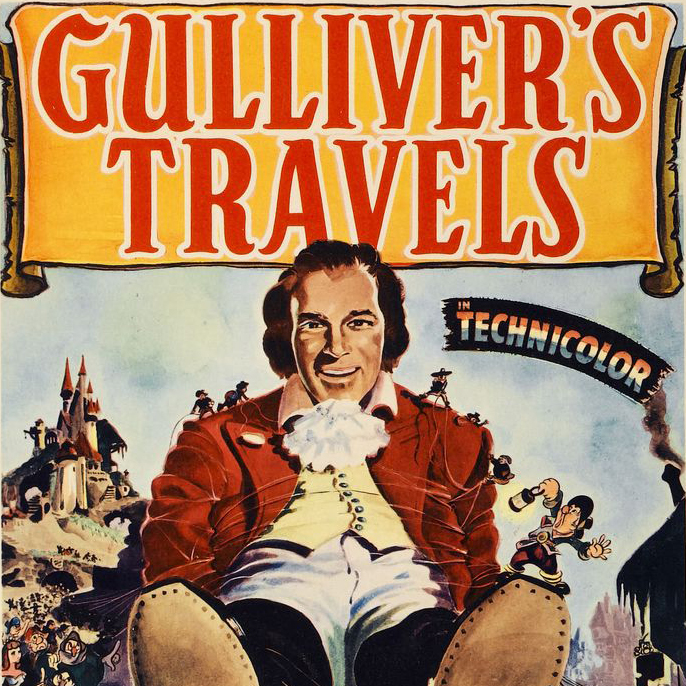
British Novel: 18th Century
ENL 3112.001|W. Kelly|Cat 2 (pre-1800)|Term 2|Boca Raton|In-Person|T/R 4:45pm–7:55pm
We'll read four short, delightful early novels: Robinson Crusoe, the first English novel; Gulliver's Travels, the satirical masterpiece; The Vicar of Wakefield, a sentimental novel; and The Castle of Otranto, the first Gothic novel. As we read them, we'll discuss connections to 18th Century history and the Enlightenment (as well as reactions to it).
*******************

Professional Writing
ENC 3213.003|J. Cohen|Cat 3|Term 3|Distance Learning|Fully Online Class
ENC 3213: Professional Writing will teach students the basics of professional composition, which entails specific formatting requirements and stylistic nuances that vary from academic writing. This course will provide instruction on common types of professional documents, such as emails, formal reports, job application letters, résumés, and web-oriented materials. The course will also include instruction on conducting job searches, completing workplace research, designing appealing documents, and providing constructive peer feedback. Many assignments will have a connection to the student’s chosen career field.
Creative Writing
CRW 3010.003|V. Fedden|Cat 3|Term 2|Boca Raton|In-Person|T/R 9:45am–12:55pm
Guidance and criticism for beginners in writing prose fiction and poetry.
Creative Writing
CRW 3010.001|J. Henson|Cat 3|Term 3|Boca Raton|In-Person|W/F 9:45am–12:55pm
Guidance and criticism for beginners in writing prose fiction and poetry.
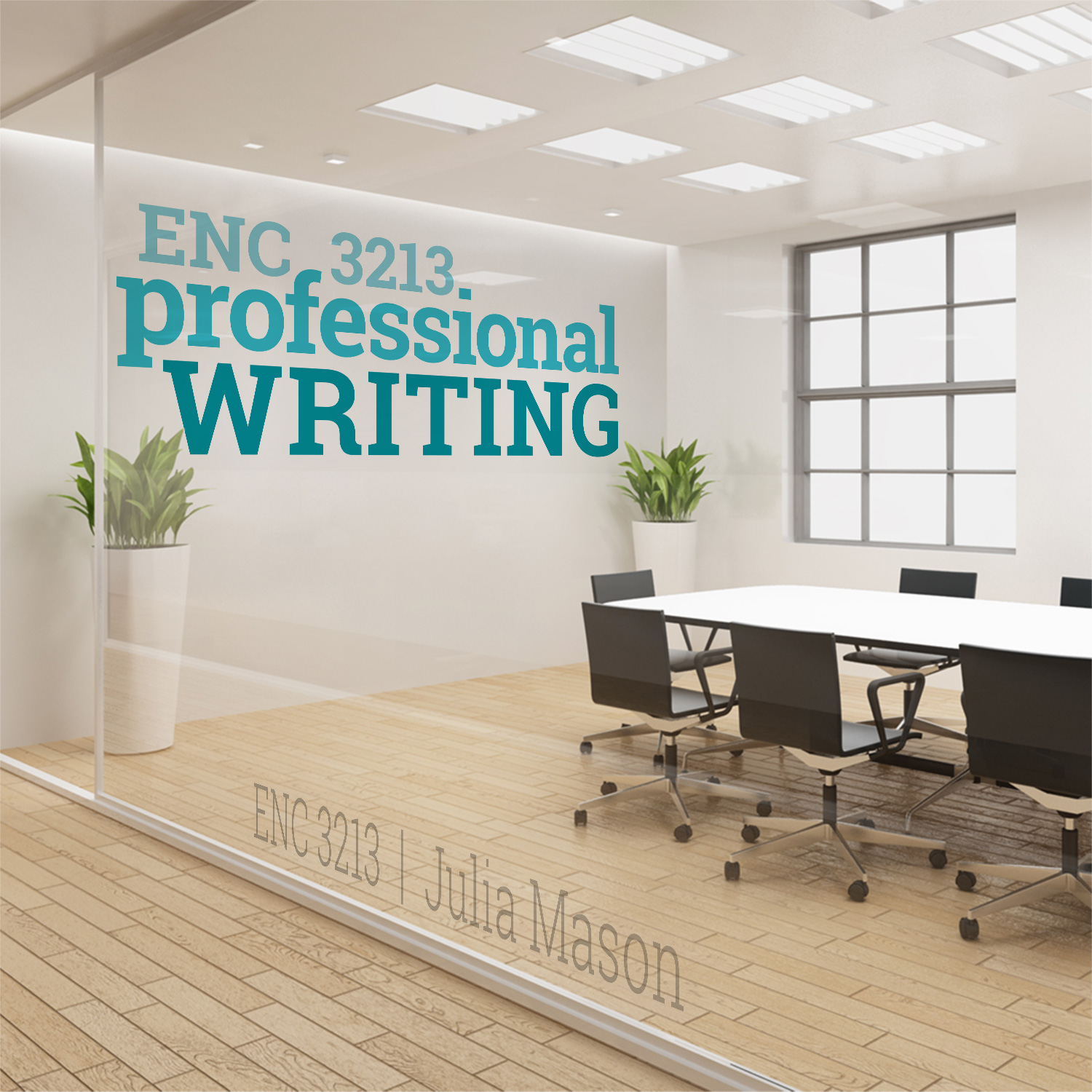
Professional Writing
ENC 3213.004|J. Mason|Cat 3|Term 2|Boca Raton|Mixed Online and Classroom|M 1:15pm–4:25pm
(Half Online / Half On-Campus: Class meets only on Mondays, 1:15-4:25pm. The rest of the week's material will be asynchronous online).
Writing as a professional entails learning the forms of writing—or genres—that professionals in the field commonly write. In this class, you will be introduced to the various types of and techniques for producing professional writing, including correspondence, proposals, reports, presentations, and other texts often found in business and professional communities. But more than this, being a professional means being able to read and write effectively in any professional situation. For that reason, this class will focus on reading and writing rhetorically—taking a rhetorical approach.
In addition to practicing professional communication in situations similar to those found in the professions, students may also analyze and write about business issues, which will demand thoughtful analysis of content areas, organizational patterns, point of view, and of document layout and design.
Creative Writing
CRW 3010.002|R. McKay|Cat 3|Term 1|Distance Learning|Fully Online Class|
The writer Toni Morrison once said, “If there is a book that you want to read, but it hasn't been written yet, you must be the one to write it.” And, similarly, the poet Ezra Pound said, “Any work of art which is not a beginning, an invention, a discovery is of little worth.” The best kind of creative writing—poem, story, essay—comes when we can find fresh and unexpected ways to present language. Stories and poems are only as strong and fresh as the language they contain, and only through strength and originality of language we can achieve depth in our writing. In this course we will approach creative writing in several ways:
|
|
Advanced Exposition
ENC 3310.001|L. Salisbury|Cat 3|Term 2|Distance Learning|Fully Online Class
Advanced Exposition ENC 3310 focuses on the study and practice of writing by building on skills developed in lower-level composition courses. As a class, we will read and write about ideas, myths, and experiences of writing as well as engage with common discussions in writing studies. We will begin by exploring writing experiences in our own lives before considering current debates about writing. Through discussing, investigating, and writing about writing we will gain knowledge about how writing works to grow as stronger, more confident, and more rhetorically aware writers. This course is especially well-suited for English majors, Education majors, and students pursuing the Certificate in Professional and Technical Writing.
Professional Writing
ENC 3213.001|P. Fox|Cat 3|Term 3|Distance Learning|Fully Online Class|
This course is designed for students who want to develop writing skills needed in the workplace. After targeting workplace audiences, students will complete an array of assignments: memos, instructions, proposals, formal reports, etc. Topics for these assignments will relate to contemporary trends in the workplace. Students will learn how to format pages, incorporate visuals into their writing, and give a collaborative, formal report based on their written assignments.
Professional Writing
ENC 3213.002|P. Fox|Cat 3|Term 2|Distance Learning|Fully Online Class|
This course is designed for students who want to develop writing skills needed in the workplace. After targeting workplace audiences, students will complete an array of assignments: memos, instructions, proposals, formal reports, etc. Topics for these assignments will relate to contemporary trends in the workplace. Students will learn how to format pages, incorporate visuals into their writing, and give a collaborative, formal report based on their written assignments.